Animals
-
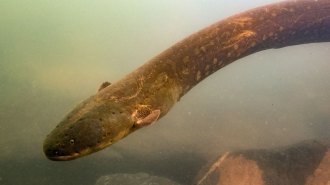 Animals
AnimalsSome electric eels coordinate attacks to zap their prey
Electric eels were thought be to solitary hunters, until researchers observed over 100 eels hunting together, releasing coordinated electric attacks on corralled prey.
-
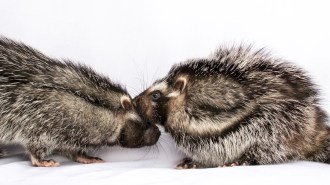 Plants
PlantsRats with poisonous hairdos live surprisingly sociable private lives
Deadly, swaggering rodents purr and snuggle when they’re with mates and young.
By Susan Milius -
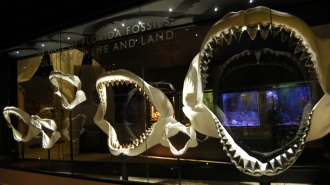 Paleontology
PaleontologyNewborn megalodon sharks were larger than most adult humans
Preserved pieces of backbone suggest that megalodon sharks were about 2 meters long at birth.
-
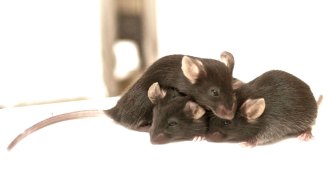 Neuroscience
NeuroscienceMice may ‘catch’ each other’s pain — and pain relief
Healthy mice mirror a companion’s pain or morphine-induced relief. Disrupting certain connections in the brain turns off such empathetic behaviors.
-
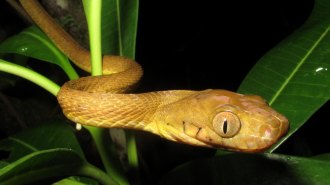 Animals
AnimalsBrown tree snakes use their tails as lassos to climb wide trees
A never-before-seen climbing technique could inspire the creation of new serpentine robots to navigate difficult terrains.
-
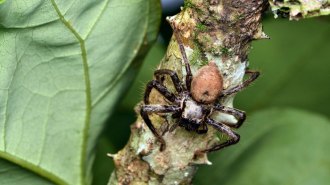 Animals
AnimalsThese spiders may sew leaves into fake shelters to lure frogs to their doom
Madagascar’s huntsman spiders use silk to turn two leaves into a cool hollow. Such microhabitats may appeal to the spiders’ prey, a study suggests.
By Jake Buehler -
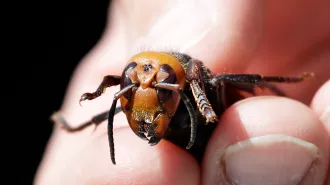 Animals
AnimalsRumors of a ‘murder hornet’ apocalypse may have been exaggerated
Murder hornets sightings in the Pacific northwest inspired a mix of concern and delight.
-
 Animals
AnimalsClearing land to feed a growing human population will threaten thousands of species
Changing where, how and what food is grown could largely avoid biodiversity losses, scientists say.
-
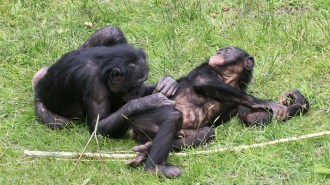 Animals
AnimalsBonobos, much like humans, show commitment to completing a joint task
Experiments with bonobos suggest that humans aren’t the only ones who can feel a sense of mutual responsibility toward other members of their species.
By Bruce Bower -
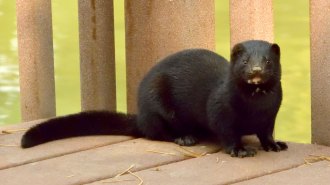 Animals
AnimalsA mink in Utah is the first known case of the coronavirus in a wild animal
A U.S. mink is so far the only known free-ranging animal to have contracted the coronavirus and likely got infected from a nearby mink farm.
-
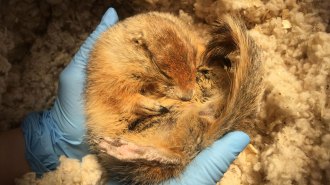 Animals
AnimalsThese Arctic squirrels recycle bits of their own bodies to survive winter
Arctic squirrels not only slow their metabolism while hibernating, but also harvest crucial substances from their muscles.
-
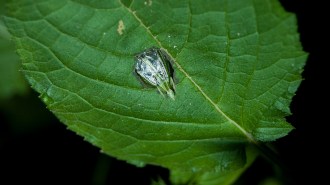 Animals
AnimalsSmall, quiet crickets turn leaves into megaphones to blare their mating call
A carefully crafted leaf can double the volume of a male tree cricket’s song, helping it compete with larger, louder males for females.